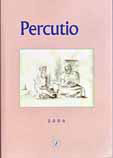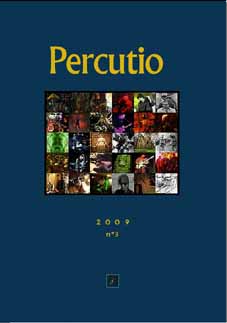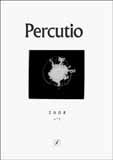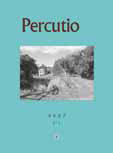The
Poet As Fraud: A Composite,
by Stephen Oliver
PART
TWO (Part One)
The American critic and
poet, Dana Gioias commonsensical essay, Can Poetry
Matter, first appeared in The Atlantic Monthly,
in May 1991. In it, he contends that poetry has become
a sub-culture that has lost its link with a wider, reading
public and is now relegated to academic institutions
and the endemic factories of poetry-as-product known
as creative writing courses. His essay immediately precipitated
reaction and counter-reaction from teacher-poets and
literary critics alike. His remarks on poetry anthologists
I find unerringly relevant and satisfyingly instructive:
A clubby feeling also
typifies most recent anthologies of contemporary poetry
... More than one editor has discovered that the best
way to get an anthology assigned is to include work
by poets who teach these [creative writing] courses
... many of these anthologies give the impression that
literary quality is a concept that neither an editor
nor a reader should take too seriously.
The editorial principle
governing selection seems to have been the fear of leaving
out some influential colleague.
The poetry subculture
no longer assumes that all published poems will be read.
Like their colleagues in other academic departments,
poetry professionals must publish, for purposes of both
job security and career advancement. The more they publish,
the faster they progress. If they do not publish, or
wait too long, their economic futures are in grave jeopardy.
The slow maturation
of genuine creativity looks like laziness to a committee.
Like subsidized farming
that grows food no one wants, a poetry industry has
been created to serve the interests of the producers
and not the consumers. And in the process the integrity
of the art has been betrayed. Of course, no poet is
allowed to admit this in public.
However, such beneficence
is yet to be bestowed upon our man. So, to return to
the profile. At intermittent periods throughout his
career, and according to the fashion of the moment,
he will produce the occasional cyclostyled or Gestetner
literary magazine (collated and stapled at his rustic
dinner table) with a careful blend of women and post-beat
writers, though mostly emerging, and young women
writers - a tokenism offered up by the boys club to
offset criticism of nepotism - the gamble being that
one or two will become famous down the track, thereby
ensuring literary and historical relevance in the great
scheme of things, with short, informal poems reminiscent
of a telephone-speak, and hip self-help snippets from
real estate and travel advertisements, smirky off-the-wall
and zany personal contact notices like Fun loving
Sagittarian seeks leather-clad chanteuse for
meaningless relationship, revamped Robert Crumb
and Archie type cartoons, mixed in with found
and concrete poems, list poems, urban cowboy and anti-intellectual
poems, dope and dada poems, poems about oral sex and
poems about the oral tradition in a bleary-eyed production
of retro 60s nostalgia and bric a brac couched
in a North American patois with a flavour of
throw-away disposability about it; a Poets Digest
of small-town flapdoodle.
It should be noted here
that although Dana Gioia states in his new Introduction
To The Tenth Anneversay Edition of Can Poetry
Matter? (August, 2002, Grayworlf Press) that a good
deal has changed for the better in the promotion of
[American] poetry, and that it now reaches a braoder
democratic base than ever before through radio programmes,
festivals, newspaper columns, the internet, etc (the
same largess, however, does not apply to the Australian
poetry scene where the opposite appears to be happening)
beyond the academic institutions, he notes, too, that
the state of poetry criticism and reviewing remains
deplorable.
Understandable really,
when you consider that the conservative mind will invariably
react with fear - even hatred, when challenged; this
applies to a particular underclass of book reviewer
happy enough to pass off ill considered opinion and
ignorance as informed, critical judgement. The democratic
process may be the guardian of free speech, but it simultaneously
lets into the backyard the rabid dogs of bias, bigotry
and personal agenda. And the biggest backyard operating
at present is the internet.
These magazines might
run to maybe five or six issues over a two year period
and then fold. A banner title would sound an attitude
in the manner of STOKED [or] GET OVER IT, BUKOWSKIS
BABY - even, dare I say it, published under the imprimatur,
WAY COOL UNLIMITED. This proves to be an effective
DIY exercise using outdated technologies which illicit
a peer-group nose-sniffing and an indulgent, passing
interest amongst the younger literati. However,
as a ploy in drumming up pre-publicity for his next
book of poems, advertising and selling through public
readings and putting in for literature grants, this
works well enough.
This is no answer to the
greater number of institutionalized national literary
and current affairs magazines - or any number of assorted
dailies with their potted poetry reviews (such publications
little more than outlets for 'establishment' book publishers,
those stooges of the multi-nationals) tired old matriarchs
of the mainstream, limping dowagers of conventional
taste still aping the mannerisms of post-second world
war literary mores like the New Statesman or the Spectator.
Yet they grind on, sagging
under the weight of precious advertising copy, outdated
cryptic crossword puzzles, and celebrity interviews,
stricken by interchangeable book review editors who
align themselves in the most partisan fashion to popular
taste, whose editorial judgements often as not are informed
by 'suspect' third party recommendations, and the dirty
politics of the literary rumour-mill. Journalist hacks
who wouldnt know a bard from a Buick, an ode from an
omelette. Journeymen, without a creative bone in their
bodies, whose cultural refinement exists in an uncanny
ability to kowtow before the established presses of
the day, and to take advantage of every A-list dinner
party thrown their way by the self-proclaimed, official
arbiters of public and literary taste. An editor in
this position is the equivalent of a 'rent boy' within
the literary industry. It is provincialism taken to
its snobbish extreme - easily associated with self-styled,
quasi-European centres like Melbourne, for instance.
Australia, geographically
the larger of the two countries, will dismiss the artist
out of a causal indifference, New Zealand, the smaller,
out of unambiguous malice; the first is attributable
to an expansive yet cultural looseness, the second to
a narrow and self-conscious insularity. I had observed
in an early poem, Welcome, To The Pace Train
[in] Guardians, Not Angels, 1993, that New Zealand
reminded me of a country shaped like a broken hand gun
- on reflection, it is a little more ragged round the
edges, closer in shape to that of a half-gnawed chicken
bone. For me, coming to Australia in the mid 80s, it
was more a case of leaping out of the fire into the
frying pan.
Our composite poet (and
he is, necessarily, a chameleon) might have diverged
slightly in career paths though he is governed by much
the same motivation; and it must be remembered that
poets share much the same mildly psychotic condition,
dont trust your fellow poet and better him
or her at every given opportunity - petty jealousies
are exacerbated in part because there is very little
money in the way of grants, or not enough monies to
go around, and even fewer publishing opportunities open
to poets; they are like dogs tearing themselves apart
over the same old mouldy bone. Unless he is an academic
- something of an El Dorado to the poet. Travel,
money, power, authority are at his fingertips. Alternate
options for the non-academic poet are school-teacherly
positions, petty bureaucrat in a government department
[drainage or engineering] an assistant editor in a small
publishing house - journalism (for the mid-career poet)
copywriting (for the younger poet). And of course the
ubiquitous creative writing institutions - adjuncts
of the university English department.
If he has
had dealings with the visual arts as critic he
may chance an appointment at a Museum of Contemporary
Art and happily cease to write altogether. Composite
poet number one. This means that, after an absence of
a decade or so, he can then burst back upon the scene
with a new book (and remember, our man is a consummate
chameleon) and depart the Art Museum like the Pharisee
rending his garments on the steps of the temple, imploring
his God (and the book buying public) to forgive him
his adulation of false idols and the promulgation of
sophistries which fooled an entire, now aging generation.
He proceeds then to claim allegiance with the classical
traditions - but who? Juvenal and his Satires,
Catullus, the Odes of Horace, (no, done to death by
all and sundry), Virgils Georgics or Theocrities
Idylls - hardly, he lives in a country altogether
smothered in sheep (as are both Australia and New Zealand)
and this would leave him feeling bloated and quite claustrophobic.
Something with a rational edge is called for to temper
those unaddressed issues of family, and hitherto disregarded
filial sensitivities in previous works. He settles on
a combination of four Roman poets of the Augustan Period:-
Propertius and his choleric intensity, Ovid and his
sanguine coupling, Virgil and his phlegmatic musings,
and Horace, with his melancholic
equipoise. For here we have, as Joseph Brodsky so neatly
put it, the standard representations of the four known
humours.
Unfortunately his collection,
titled Cantos for Connoisseurs proves to be at
once flat and prosaic, sickly sweet, and in his attempt
at gravitas and sincerity, mere block sentiment.
His knowledge of traditional forms essentially only
goes back to Ezra Pound! Not for him (and I paraphrase
the Robert Graves edict) the wastepaper bin is the writers
best friend. Yet like many poets of his generation,
he had simply picked up on attitude, a synonym for what
is dernier cri - and not the discipline which
informed it; his work, therefore, exhibits a cardboard,
two dimensional perspective. A brand-new dishonesty.
Nevertheless, the book
is trumpeted a success amongst the dinner-party set
(he includes a few mock ancient recipes vis a vis
poems, only too well aware that cookery books are best
sellers) of Remuera and Parnell in Auckland, Khandallah
and Oriental Bay in Wellington; in Sydney, a hit in
the Eastern suburbs and especially Vaucluse; in Melbourne,
a gracious acceptance in Toorak and South Yarra. O happy
days! Welcome the return of the profligate son from
the corporate wilderness. Let us lift our glasses of
curaçao and sigh in collective, groovy
relief. The fashion for sincerity and reinventing ones
self takes off like wild fire amongst the high rollers
and the CBD art brokers and investors.
He is also mildly sympathetic
to his other, the less frantically received composite
poet number two, the one who as a confirmed outsider
lives by choice in a downbeat suburb, who might run
a second hand bookshop in an old hippy neighbourhood
- maybe selling a little dope on the side to make ends
meet, or working as a garbo, doing a postie run in an
Alsatian infested housing estate - or if seriously into
employment (married, for instance, with a few dependants)
driving a cab at night with a monkey wrench under the
seat. It is toward composite poet number two
that our man turns to first when he launches his book,
and with whom he will do a select number of readings
to endorse his anomic street cred and new found humility.
Is he not, after all,
still that same self-styled, establishment destroying
Aeneas his publicity machine made him out to be in the
early days of his career? Whatever the answer,
funding belongs to those at the top end of the pecking
order, and as a result, there is never enough to go
around at any one time in this yearly lottery. And as
to International Literary and Arts festivals, these
are the Elysium fields of the Booker Prize Award Winners
and the Queens Medal for Poetry recipients - and for
those few academic poets and others who are duly appointed,
or those who are kept as token representatives of the
craft (as a tax write off) by the main stream university
publishing houses - who can wangle their way through
nomination committees to make up the numbers. Poetry
governed by Machiavellianism principles of duplicity
and the muse in such quarters is dead and buried.
Dionysus, progenitor of
the lyric poet, has been handed not a goblet of wine,
but a score-card! A true respect for the office of poet
appears to have been long abandoned by the versifier.
And having come phenomenally thus far in the light of
all our advances, I wonder whether there is yet a new
way to be surprised at life - its mysteries,
if we can still call them that, beyond the prevailing
fashions and the dulling of the senses? You will not
today, for instance, find a Socrates sipping hemlock
in defence of an ideal, or a Diogenes hanging out in
a storm-water drain. The Thomas Chatterton myth is a
sorry footnote to and parody of the Romantic tradition
- at least, in terms of grand passion pitched to the
level of vision and the epiphany of belief - to be found
contesting failure in the confrontation with self. It
is difficult enough to be single minded in a multiple-choice
world. That sort of naivety could never be tolerated
these days. It is no longer a case of the belief behind
the act; conversely, it is more a case nowadays of the
act behind the guile. You are more likely to find pop
lyricists living in penthouse apartments opening doors
by remote control and driving keyboards to sophisticated
software packages. Victims to the terminal cliches of
hype.
Poetry has been hijacked
by the careerists and ego-terrorists who believe that
immortality is equated with fame and the manipulation
of other peoples emotions and insecurities for real
or imagined gain. These days, the so called movers and
shakers of an earlier poetic generation are now middle-aged
anthologists and committee members who have closed ranks,
scrofulously occupied in a rear guard action of shoring
up defences against exposure en déshabillé
as frauds, which every passing day threatens, and are
to be found acting as pimps, under the influence of
OHaras shade (or any other recently contemporary, adoptive
model) and his merry band of acolytes, in deference
to a precocious lack of talent.
With the emergence of
the next generation closely dogging their heels, these
revolutionaries are soon exposed for what they always
were - merely the new status quo waiting patiently in
the wings, who must at all costs, and against every
challenge to their inherited position, maintain the
stance of cultural rectitude. As always, the hard hitting
common sense of Orwell is reassuringly instructive here
- in identifying false assumptions based on --
predicting a continuation of the thing that
is happening. Now the tendency to do this is not
simply a bad habit, like inaccuracy or exaggeration,
which one can correct by taking thought. It is a major
mental disease, and its roots lie partly in cowardice
and partly in the worship of power, which is not fully
separable from cowardice. To which one might add, stupidity
governed by the blindness of arrogance, which is not
fully separable from fear.
The prevailing social
democratic freedoms in what we like to call the civilized
world means that every man and his dog reckons he can
lay claim to the title of representative poet [literary
politician] should he wish to do so, and such a claim
would never be contested because the meaning of the
term has long since lost its true value. Unbridled freedom
(of expression) breeds meaninglessness in language -
but then, it does keep legions of post-modernists assiduously
employed in the circular task of intertextual self-promotion:
I came, I saw, I signified. The internet has
a more reliable memory component in the currency of
our day-to-day dealings [Jean Luc Godard has
observed, With digital, there is no past] and is a greater
disseminator of what passes for critical information
than any poet today who would dare claim guardianship
of the pale fire and historical truth.
We dont want priests or
soothsayers, and we can certainly do without the autocratic
semiotician, but we do need archaeologists of the spirit.
Once upon a time, books meant something. It is rumoured
that Orpheus was killed in a rock slide and the Eumenides
sacked Parnassus.
from DEADLY
POLLEN
With digital, there is no past,
says Jean-Luc Godard. Either way,
the button is redundant. Voice-command
is thought - the fear deep and futureless
as history, desire to appease which
remains featureless, not the disorganized
weather it truly is, as much a part
of
the breathing stars as constancy of
rock.
The Mr Whippy Man weaves
Greensleeves in and out of suburbia;
a
caravan in search of a trade-route
via the village that never existed.
The latest reports from
the semiotic laboratories inform us, by cypher, that
language is a damaged imprint jettisoned by redundant
thought processes, - idea is the husk of idea, a misprision
of perception and misalignment of historical perspective;
hyper-real theory in the first instance yet to be constructed.
Will the printed word be reduced to a set of algorithms
and instruction manuals only accessible on-line? Will
the caption replace the plot and the novel, and will
the visual image serve as no more than pictographic
reference for what once passed for historical continuum?
Drink deep of the Cauldron of Forgetfulness.
These and other leading questions of the moment appearing
daily on a monitor near you. The continuity of thought
is deeply fractured, and we are heading into the Gorgons
cave of amnesia. The Gods in disgust have departed through
a hole in the ozone until such time as we can again
fully embrace fear in all its primal, stark honesty
- transmuting it to vision with an hallucinogenic intensity.
Only then will natures Gods enter back through that
mirror. Meanwhile, prestige has superseded prescience
and the face of poetry has become in many respects a
death mask.
Broadly speaking then,
the post-colonial world is the world of the bureaucrat
- arbiter of systems and mainstay of disinformation,
ubiquitous dismantler of histories and cultural legacies.
Emerging out of all this, one soon becomes aware that,
at least within the New Zealand context [we are insular
and smug and we like it that way] the land of the
long white cloud is, in effect, a shroud of a more poisonous
vapour. [If we cant cope with it, we ignore it].
A deep sense of shame resides in the post-colonial psyche
of having been expelled into Eden [by association
we must include one other Edenic state, Tasmania, reassuringly
known as the Apple Isle and in many ways a closely guarded
literary enterprise, though maybe at times a victim
of its own insularity in what Laurence Durrell termed,
isle-o-mania] with the brute knowledge gained
of damage done, and genocidal crimes committed, in the
very act of acquisition. In the final analysis, the
formidable Anglo-Saxon reserve (oh, the turning of the
worm!) becomes a monument to its own xenophobia.
We are young enough to
remember our guilt but not mature enough to admit it.
And this exclusivity of denial - of a peoples sense
of personal and collective elitism - is gathered from
and expressed, or should that be, non-expressed through
its official art and literature, - with a nationalistic
sticker slapped upon it as product. This gives rise
to an unconnectedness euphemistically called
the village mentality a phrase somehow designed to make
such guilt, if not gilt-edged, at least acceptable.
Acceptable in the sense that cottage industry is acceptable.
The product, however, is a lie and the truth of the
matter (for which one should read) a sense of identity,
is deeply flawed but without that admission.
Such an intractable self-regard
can only breed a nationalistic consciousness that is
at once neurotic and accumulatively paranoid (and paranoia
after rugby is a favourite pastime in New Zealand).
All is not well in the Garden of Eden, in Gods very
own real-estate, where the same promotional multi-media
CD plays its mantra in the dream-scapes of the citizens
over and over as The Anatomy of Amnesia. The head may
be severed from its past but it still talks! In this
case, history will not say sorry - but I told
you so.
Ask any liberal or national
prime minister of the day. Yet never expect the truth
from any winery-sponsored, 'poet laureate of the year'
(from his elevation, the world is a sweet-meadowed place)
whose poetic utterances are only required to meet the
needs any air-brushed life-style or House & Garden
magazine, and corporate sponsored wine festivals, where
the Dionysian investiture has all the relevance of a
liveried, car-park attendant.
THE
CARTOGRAPHER
A journey is a
balancing of tensions;
a ravine, a man
and his echo.
The benediction
and malice of gods.
Metamorphoses.
An eye for distances, a full sail.
Earth, air, fire,
water; flux in preservation,
that which is fluid
assumes identity, for what went
before comes after.
Levels of light at ten to
five, late June,
is honey yellow as flame.
A tortoise-shaped island flies
over the horns of Australia.
Black winds battle-locked under
earth burst forth a mountain
fuming.
'And when he felt that what
he saw was true
He entertained the public
with his knowledge'.
© Stephen
Oliver, 2005
The Poet As Fraud: A
Composite first published in this revised
version, June 2005 issue of Antipodes: A North
American Journal of Australian Literature |




